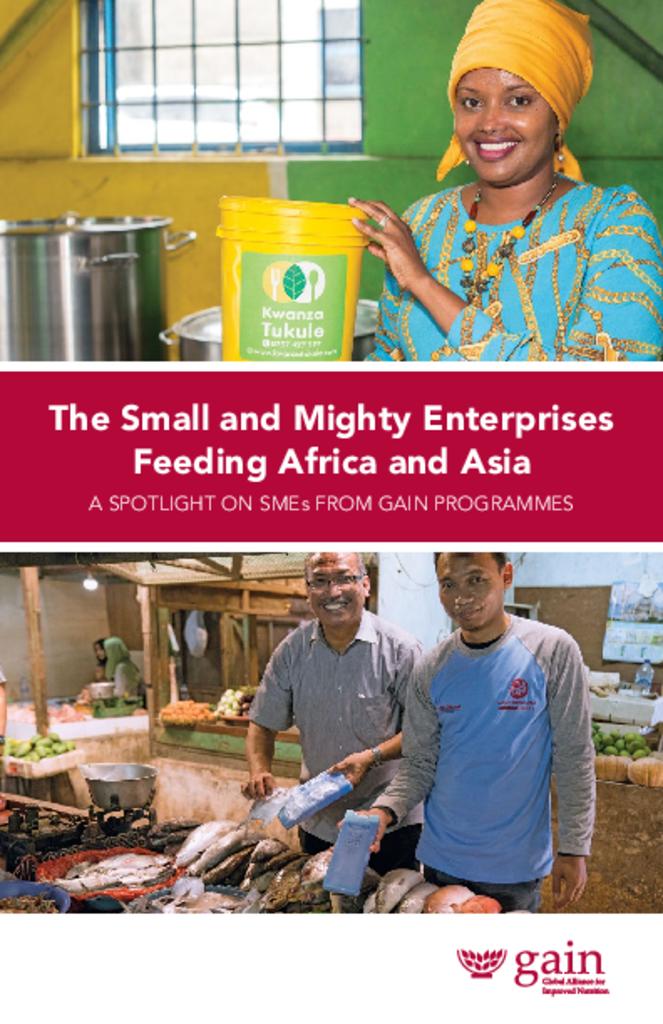In low-income countries, poor dietary diversity is driven in large part by the low availability and affordability of nutritious foods like fresh fruits and vegetables, dairy products and other animal sourced foods. In a recent assessment, GAIN determined that small-and medium-sized enterprises (SMEs), or small and mighty enterprises as GAIN likes to call them, produce, process or sell up to 70% of nutritious food sold in low-income markets in Africa.
SMEs face various constraints in their ability to produce safe, nutritious foods. Specialised knowledge on food production, labelling, packaging, and marketing is often difficult to find in low-income countries. Where such knowledge is available, it is often prohibitively expensive for SMEs. Further, there are few networking opportunities or information-sharing platforms available to SMEs involved in the production of safe, nutritious foods.
By providing SMEs with technical and financial assistance, we can enhance companies’ operational performance and improve the quality and desirability of the foods they produce. Support to SMEs results in increased profitability of businesses, and increased availability of safe, nutritious foods in the market. With funding from the Netherlands Ministry of Foreign Affairs, UK Department for International Development (DFID), United States Agency for International Development (USAID) and the Rockefeller Foundation, GAIN has provided targeted technical assistance to over 134 SMEs and has convened and trained over 2,000 businesses in 7 countries between 2013–2019. By working with investible businesses to build capacity, foster networks, and support innovations all along nutritious food supply chains, GAIN is making a sustainable contribution to agriculture, enterprise development and nutrition
